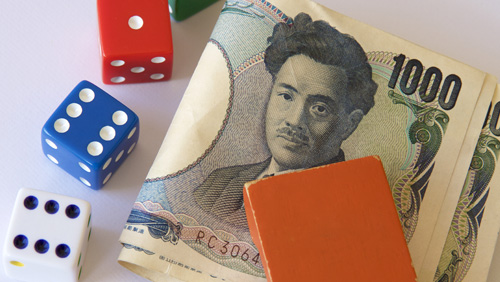International credit watcher Fitch Ratings has capped Japan’s potential annual gaming revenues at $6 billion as the government formally presented a bill that would pave the way for the opening of casinos in the country.
 Fitch’s outlook was below the consensus of other financial analysts, which were generally above the $10 billion mark.
Fitch’s outlook was below the consensus of other financial analysts, which were generally above the $10 billion mark.
The credit ratings agency’s pessimism was fueled by the developments in Japan’s Integrated Resorts (IR) Bill, which was forwarded by the ruling Liberal Democratic Party (LDP) and its junior coalition partner Komeito on Friday to the members of the Diet.
In a nutshell, the IR bill would mandate the government to set an upper limit on casino floor space. The coalition also agreed on a 30 percent tax on casino revenue, an entry fee of JPY6,000 (US$55.92) for residents of Japan and an initial cap of three casino sites nationwide.
The government would also need to conduct a thorough background check on operators to ensure that they won’t have ties with organized crime groups. Casino officials found guilty of securing licenses through fraudulent means face up to five years in prison or a fine of up to ¥5 million, according to the bill.
Taking these items into consideration, Fitch projects approximately $3 billion of gaming revenue for one large-scale IR in a major metropolitan area and two remote resorts with revenues of about $1.4 billion each. Fitch arrived at these figures by comparing Japan with other regional casino markets.
“Fitch believes estimating Japan’s gaming revenue potential based on comparisons to other resorts versus other methodologies such as per capita estimates makes more sense in context of the limited capacity that will be allowed by regulations,” the credit ratings agency said in a statement.
On Friday, Japanese Prime Minister Shinzo Abe led the presentation of the proposed casino measure as he brushed aside a flurry of personal political scandals.
Abe sees a need to pass the bill in order to lure more tourists to Japan while providing safety nets for local residents, according to Kyodo News.
“We will promote tourism with visitors from all over the world spending days (at the casino resorts), while taking complete measures to address various concerns including gambling addiction,” Abe said.
Meanwhile, big cities in Japan are already preparing for the possible entry of casinos in their respective jurisdictions.
If the IR bill goes smoothly in the Diet, Japan Times reported that Osaka governor Ichiro Matsui wants a casino resort as early as 2023 should the Diet pass the proposed measure with no unexpected delays.
“Discussion of the legislation has been delayed a little bit, but discussion on the contents of the Liberal Democratic Party [LDP] and Komeito bill has now wrapped up. So it will be passed in the Diet,” Matsui said, according to the news outlet. “Under that assumption, we want to realize a casino resort in fiscal 2023, or by 2024 at the latest.”